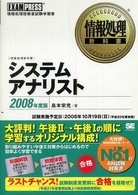- ホーム
- > 洋書
- > 英文書
- > Science / Mathematics
Full Description
This book puts forward a new role for mathematics in the natural sciences. In the traditional understanding, a strong viewpoint is advocated, on the one hand, according to which mathematics is used for truthfully expressing laws of nature and thus for rendering the rational structure of the world. In a weaker understanding, many deny that these fundamental laws are of an essentially mathematical character, and suggest that mathematics is merely a convenient tool for systematizing observational knowledge.
The position developed in this volume combines features of both the strong and the weak viewpoint. In accordance with the former, mathematics is assigned an active and even shaping role in the sciences, but at the same time, employing mathematics as a tool is taken to be independent from the possible mathematical structure of the objects under consideration. Hence the tool perspective is contextual rather than ontological. Furthermore, tool-use has to respect conditions like suitability, efficacy, optimality, and others. There is a spectrum of means that will normally differ in how well they serve particular purposes. The tool perspective underlines the inevitably provisional validity of mathematics: any tool can be adjusted, improved, or lose its adequacy upon changing practical conditions.
Contents
Chapter 1. Introduction (Johannes Lenhard).- Part 1. Organizing Science.- Chapter 2. Rational and Empirical Cultures of Prediction (Ann Johnson).- Chapter 3. Mathematization in Synthetic Biology: Analogies, Templates, and Fictions (Tarja Knuuttila).- Chapter 4. Trigonometry, Construction by Straightedge and Compass, and the applied mathematics of the Almagest (Ido Yavetz).- Chapter 5. Shaping Mathematics as a Tool: The Search for a Mathematical Model of Quasi-Crystals (Henrik Kragh Sørensen).- Part 2. Conceptual Re-Evaluation.- Chapter 6. Boon and Bane: On the Role of Adjustable Parameters in Simulation Models (Hans Hasse).- Chapter 7. Systems Biology in the Light of Uncertainty: The Limits of Computation (Miles MacLeod).- Chapter 8. The Vindication of Computer Simulations (Nicolas Fillion).- Chapter 9. Empirical Bayes as a Tool (Anouk Barberousse).- Part 3. Reflections on the Tool Character.- Chapter 10. On the Epistemic and Social Foundations of Mathematics as Tool and Instrument in Observatories, 1793-1846 (David Aubin).- Chapter 11. Approaching Reality by Idealization: How Fluid Resistance Was Studied By Ideal Flow Theory (Michael Eckert).- Chapter 12. Idealizations in Empirical Modeling (Julie Jebeile).- Chapter 13. Forcing Optimality and Brandt's Principle (Domenio Napoletani).- Chapter 14. Object Oriented Methods vs. Data Analysis: Is this the Right Alternative? (Jürgen Jost).








